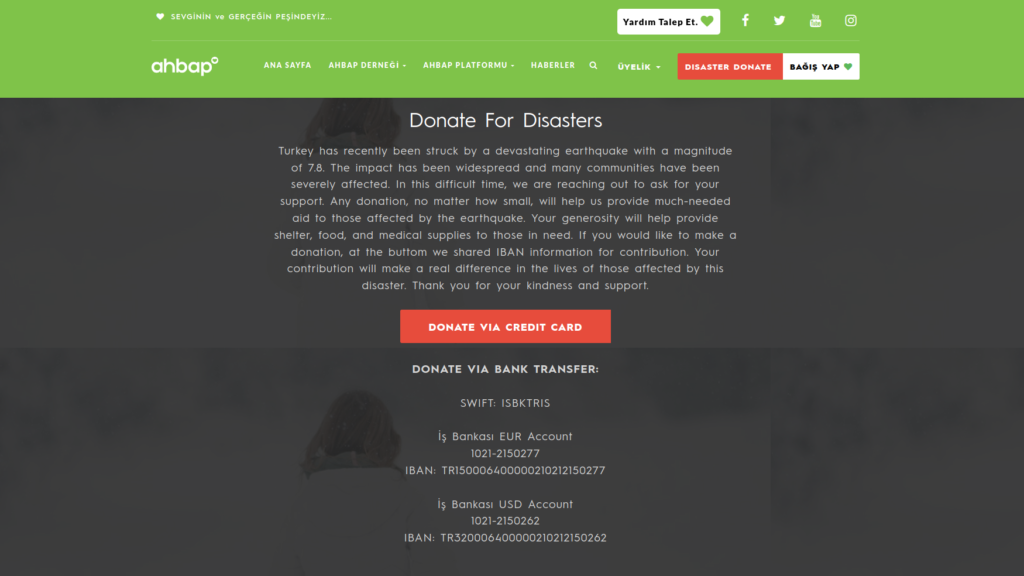TL;DR
My thoughts on managing the emotional toll of social media, and being a productive member of modern society: spend your mental and physical resources in a meaningful way.
Disclaimer
I’m not a psychologist! I don’t have a relevant education nor do I have enough knowledge to advise on mental health. In this post, I will describe the situation as I see it myself, and propose a solution that worked for me. If you feel depressed or anxious it is always a good idea to seek professional help. Mental health is health after all.
What happened?
A lot! My initial plan was to talk about our moving experiences and the unfortunate surprises we encountered along the way. However, the horrible earthquake in Turkey and Syria has changed my plans. Complaining about a “13 degrees cold” flat seems out of touch when people are trying to survive under the rubble, and literally freezing (as in dying due to hypothermia) because rescue teams can’t reach them on time.
What can I do?
First of all, if you want to help Turkish people I would strongly suggest donating to Ahbap. It is a great and trustworthy ngo. Unfortunately, I don’t know about any organizations in Syria. I will add some information here if I can find something I can trust.

I guess a similar thing goes for almost all disasters. Unless you are in the area or a member of a search and rescue team, there is not much you can do besides donating money.
What can’t I do?
This brings me to the main topic of this post. Almost every day, or at least a couple times a week we come across a heartbreaking story, if not a large-scale disaster. Affected and sympathetic people are asking for help or justice.
We, as humans, physically can’t care about each and every disaster, war, or any other kind of human suffering. Let alone helping all the affected people. Yet, when using social media we see all the suffering and feel bad about it. Instinctively we try to spread our sympathy among all such cases. We feel bad for all of them.
However, empathy, like almost any other kind of emotion, requires energy, which is a limited resource. When we try to help or even care about everyone we end up emotionally exhausted, and depressed. Ending up on the couch, binging on another soon-to-be-canceled Netflix show. As you can imagine, this doesn’t help anyone. Not you, not the people in need, and not the society. Half-assed, unfocused sorrow spread among hundreds of tragedies doesn’t do anything but harm.
The healing process
For brevity’s sake, I will not describe my thought process in this post. Perhaps I will write in detail in a later one.
Step 1: Acceptance
Before I propose my solution to this dilemma, let’s face the facts: you cannot help everyone. Even if you become the president of the whole galaxy, you will have limited resources. When you try to fix everything, you end up hurting everyone including yourself. You get depressed, you hurt your loved ones with your depression, and you become a less productive member of society. So don’t try to help everyone. Know your limitations.
Step 2: Insight
Whenever you feel mentally exhausted or sad resist the urge to check the news, especially social media. Ask yourself: what good it will make? You will see bad news, read heartbreaking stories, and won’t be able to do anything to help. All it will do is hurt you even more.
Step 3: Action
At this point, the simplest solution is obvious: stay away from social media. Period. Everyone gives this advice, everyone knows it’s the best course of action for their mental health. And it is true. Lately, many people do take this advice, and it helps a lot.
But for me, it doesn’t really work. I can’t bring myself to close my social media accounts. So I found an alternative solution, or an alternative perspective if you will.
As I mentioned above, we have very limited resources. Why not use them wisely? Figure out what you know best and what can you do with this knowledge. Can you apply your skills for the betterment of the world? You don’t even have to have any special skills. Sharing relevant content on social media and talking to people about a particular issue could be more than enough.
The important thing is to know your limits and find a sustainable way to work for your cause. If liking a youtube video and writing a comment below is all you can do, great! Do that! Do you think you can have a meaningful contribution? Try writing an article (yes, just like this one). Do you have time to volunteer? Well, what are you waiting for?
For some people, it can be as simple as performing their jobs to the best of their abilities. But try to keep in mind your ultimate goal, and ask yourself whether or not you are getting closer.
Step 4: Self-Esteem
Now you are doing your part! Your contribution, no matter how small, will make the world a better place. You are doing everything in your power to help others. You can’t do more simply because you don’t have enough resources. And it is unreasonable to expect from you something else. With this knowledge, you can relax and be proud of yourself.
Step 5: Healing
As a byproduct of the increase in self-esteem, you will feel happier, will be a more productive member of society, and get more satisfaction out of your life overall. Keep in mind that you can’t fix everything, and you already are fixing whatever you can. There are eight billion people on earth. Someone else will take care of the rest.
After realizing this I noticed that social media doesn’t stress me out as much as it used to. I can’t do all the jobs in the world after all. And that’s OK.
Step 6: Meaning
Every experience, no matter how pleasant or terrible, big or small can be valuable if conclusions are drawn. Otherwise, we are doomed to repeat the same mistakes over and over again.
I’m sure everyone will derive their meaning from this experience. Perhaps someone will find a cause close to their heart, or just realize how valuable their job is. For someone quitting social media completely will be the correct decision, while others may utilize it for a project which will bring an end to misinformation.
Personally speaking, I figured out how to handle social media, and how to maximize its benefits while minimizing the harm. At least on a personal level. Dramatic events like wars and disasters don’t paralyze me like they used to because I know my purpose. I know I’m using my resources in the best way I know to help future generations.
I hope there is something of value in here for you too, and I didn’t completely waste your time. Let me know how you deal with social media-induced guilt. Maybe together we can come up with a better solution.
